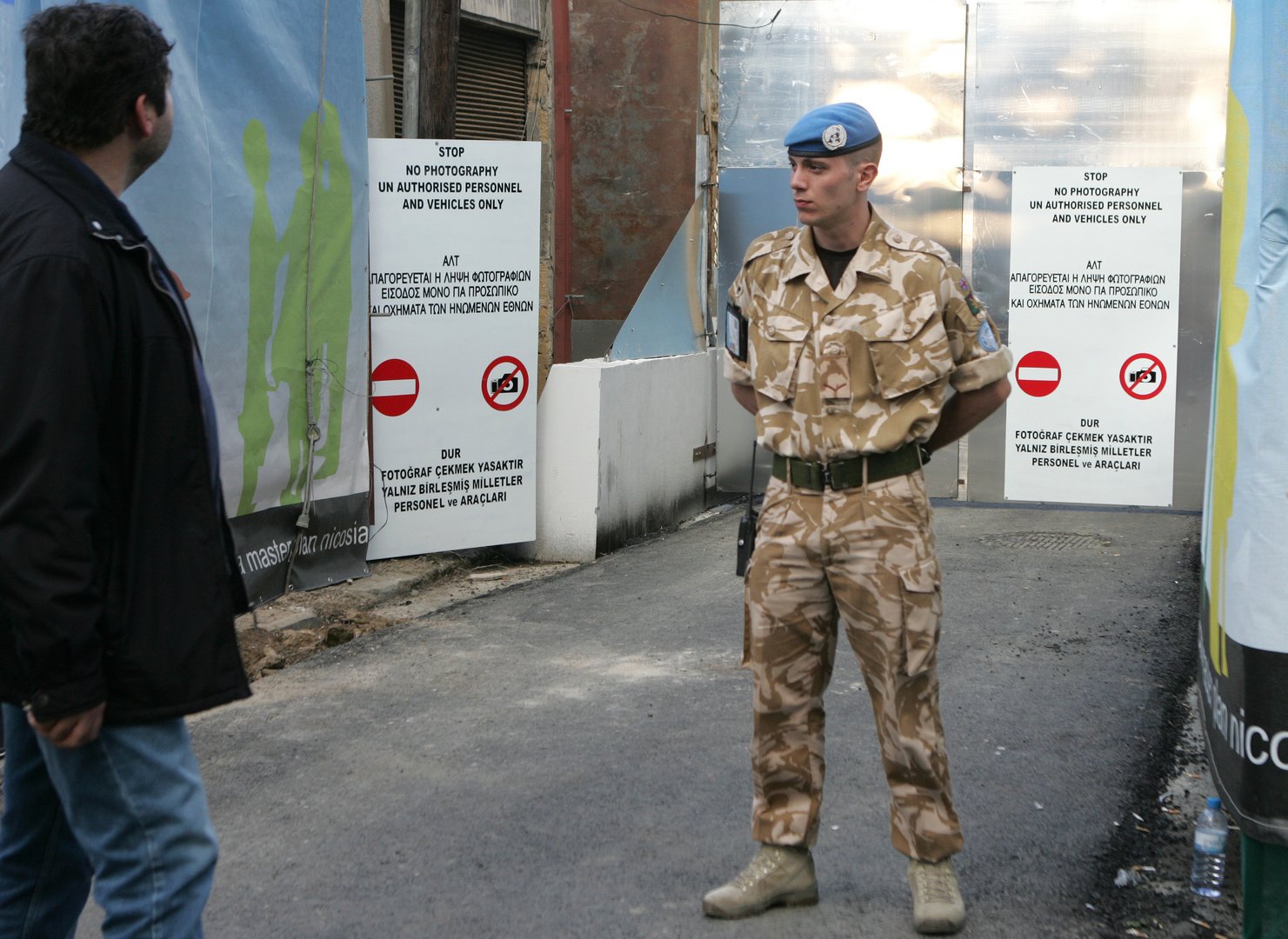UN Secretary-General Antonio Guterres is disappointed over the lack of progress in resuming Cyprus talks and has called on both sides not to miss other opportunities for dialogue.
The comments came in Guterres’ draft report on his Good Offices Mission and the separate one on Unficyp’s mandate, and ahead of the expected formal announcement of a new UN envoy, named as Maria Angela Holguin Cuellar.
In the Unficyp report, Guterres said that on March 4, 2024, the United Nations in Cyprus would mark 60 years of continuous and concerted efforts to maintain peace and stability on the island and to help Cypriots find a mutually-acceptable resolution to their differences.
“This milestone is a sobering reminder of just how long the people of Cyprus have been waiting for a resolution,” he said.
For almost 50 of those years, in the absence of a formal ceasefire agreement, UNFICYP peacekeepers have successfully de-escalated tensions in the buffer zone and prevented conflict, the report added.
“Recent developments both on the island and in the region have underscored that conflicts, which may appear frozen on the surface, often continue to simmer underneath. As the divide grows wider year after year, there is an increasing realisation on both sides that the prospects for a solution that everyone can accept are gradually fading. I urge both leaders not to let any more opportunities for dialogue slip past,” Guterres said.
He said the UN remained steadfast in its commitment to a peaceful resolution of the Cyprus issue. “However, it becomes clearer with every passing year that the divide between the sides is growing, gradually eroding the prospects of finding a mutually acceptable political settlement.”
The UN chief said that while the underlying positions of the parties on the peace process remain far apart, he would continue to encourage the two leaders to be open to mutually acceptable modalities for dialogue at their level, as he believes this remains crucial for finding a way forward.
Guterres also referred to the “significant increase in the number and severity of military violations” on the island during the reporting period, saying it was a major concern for the prospects of a peaceful resolution of the Cyprus problem.
The encroachment into the buffer zone by both military and civilian projects prompted actions between the sides that continued to reinforce mistrust and counter trust-building efforts, according to the report. For this reason, he recommends that the force’s mandate be renewed until January 31, 2025
During the reporting period, he said, the Greek Cypriot and Turkish Cypriot sides maintained their divergent positions regarding the way forward on the Cyprus issue. While the leaders came together twice during the reporting period, they did not engage in substantive discussions, and public confidence in the prospects for a possible peace process remained low.
“The continued divisive rhetoric is regrettable and efforts towards trust-building should also be actively supported at the political level. Obstacles to greater interaction between Greek Cypriots and Turkish Cypriots continue to limit the daily intercommunal exchanges and prevent the interdependence that would greatly foster the conditions for sustainable peace and help pave the way towards a settlement,” Guterres said.
Overall, he added, the majority of the technical committees maintained the same regularity of meetings, while the technical committee on humanitarian affairs resumed meeting after a year’s gap and the technical committee on education remained dormant for the most part, with one plenary meeting being planned in the days just after the end of the reporting period.
“Meaningful initiatives or gestures are critical for creating momentum towards dialogue and building trust. Delays facing other committees in the implementation of their proposed activities should be resolved,” Guterres said. “Challenges faced by the technical committee on education are unfortunate and need to be addressed.”
Guterres continues to call on the two sides to provide the technical committees with the necessary support and leeway to preserve their ability to function, deliver results and address matters with island-wide implications.
“These committees… should be protected and insulated from larger political discussions and developments on the ground.”
When it comes to military issues, Guterres wrote at length about the Pyla-Arsos road and the incidents surrounding it in August when there was an attack on Unficyp personnel from the Turkish Cypriot side when road works went ahead without the UN’s permission. A ‘mutual understanding’ was later reached between the two sides but continues to face challenges, the UNSG said.
“The events in Pyla/Pile provided an example of how developments in the buffer zone can negatively affect the situation on the island,” he said, adding a line on the continued violations in the fenced-off town of Varosha in Famagusta, which run contrary to UN resolutions.
Also negative was that no agreements had been reached on opening new crossing points. Both sides have long-standing, “but mutually exclusive proposals” Guterres noted.
On irregular migration through the buffer zone, the report says the two sides should work together on this.
The report noted a trend towards the reduction in the number of asylum applications, with 9,176 persons registered during the first ten months of the year, compared with 18,348 during the same period in 2022, representing a 50 per cent decrease.
Irregular crossings of the Green Line persisted, although the percentage of the total number of asylum-seekers who crossed from the north decreased from 81 per cent at mid-year to 66 per cent by the end of October 2023.
The decrease, it said, was attributable to the rise in the number of boat arrivals directly to the shores of the Republic of Cyprus. Up until the end of October, there were 78 direct boat arrivals carrying some 2,777 persons, the vast majority of whom were Syrians. The number of boat arrivals to the shores of the north remains unknown, it added.
One positive that Guterres noted was the warming of relations between guarantor powers Greece and Turkey, a development, he said, that could positively impact the Cyprus issue.

